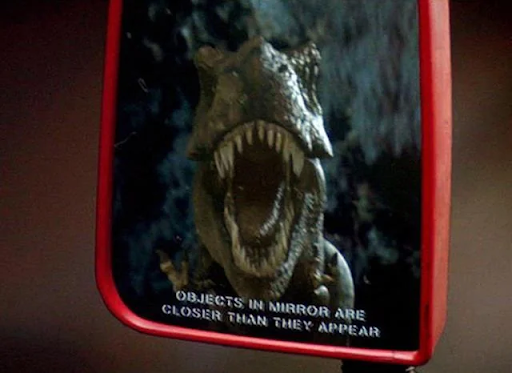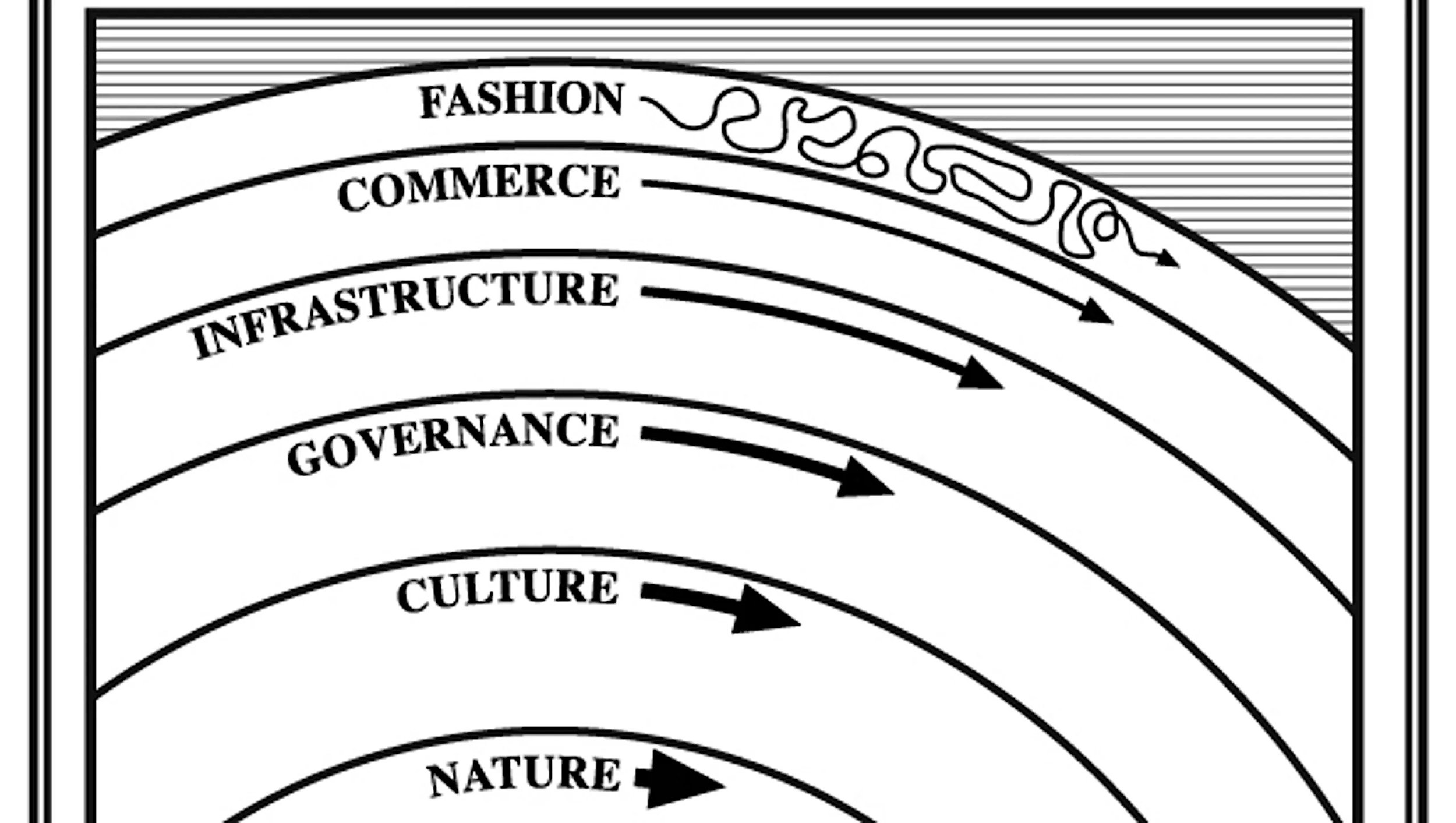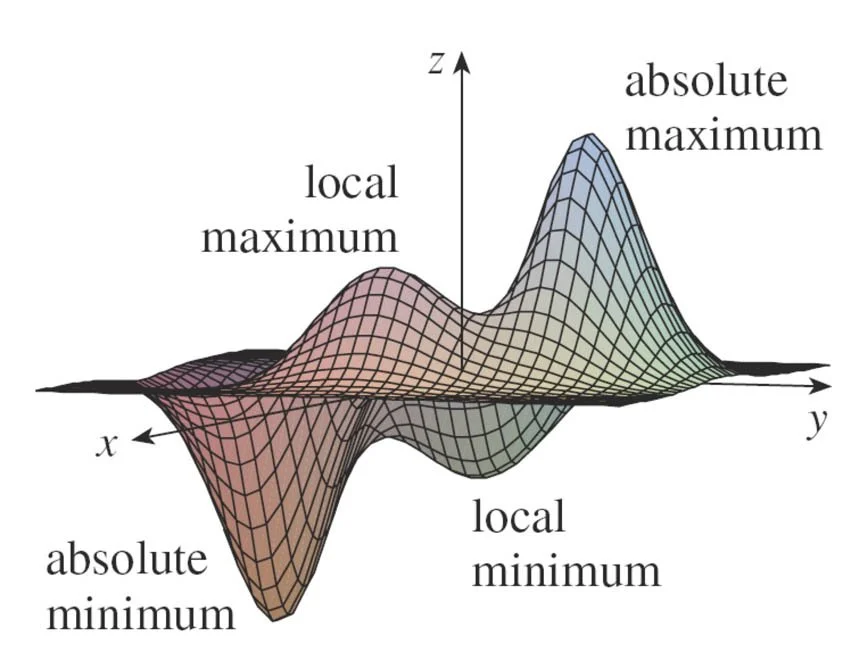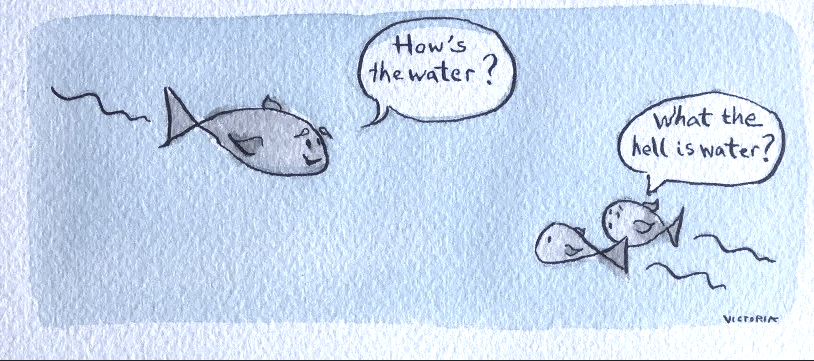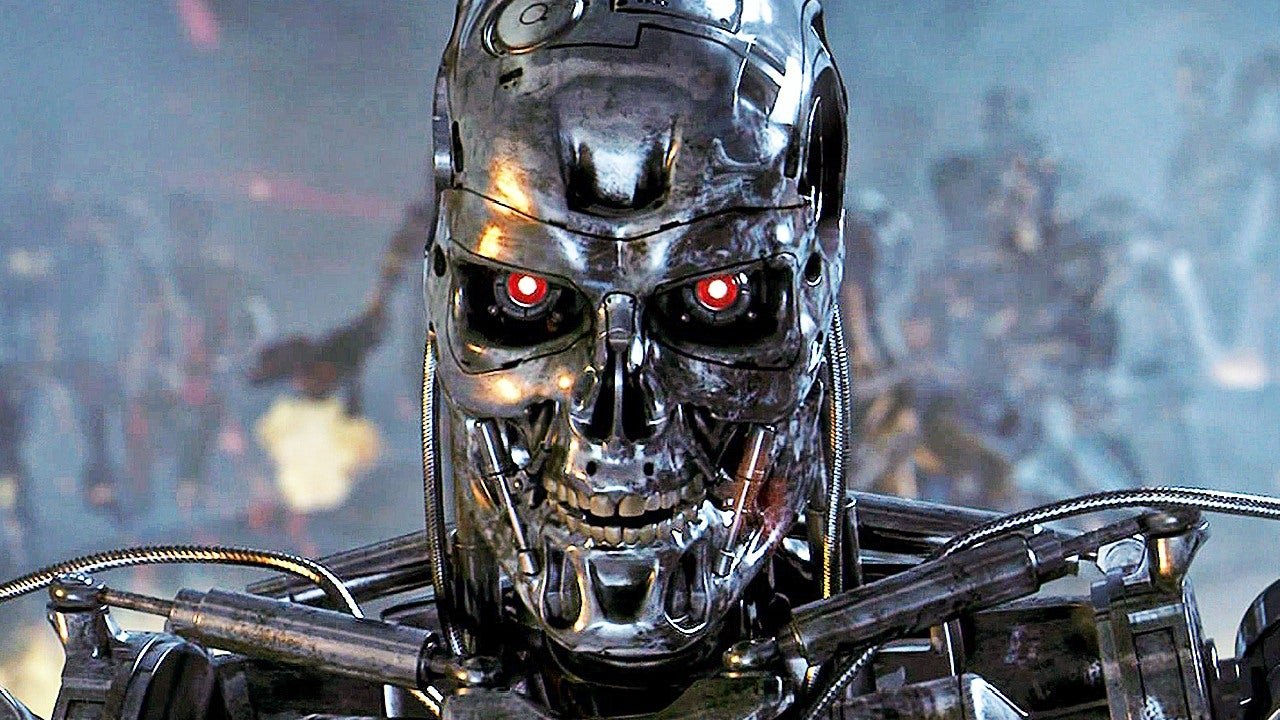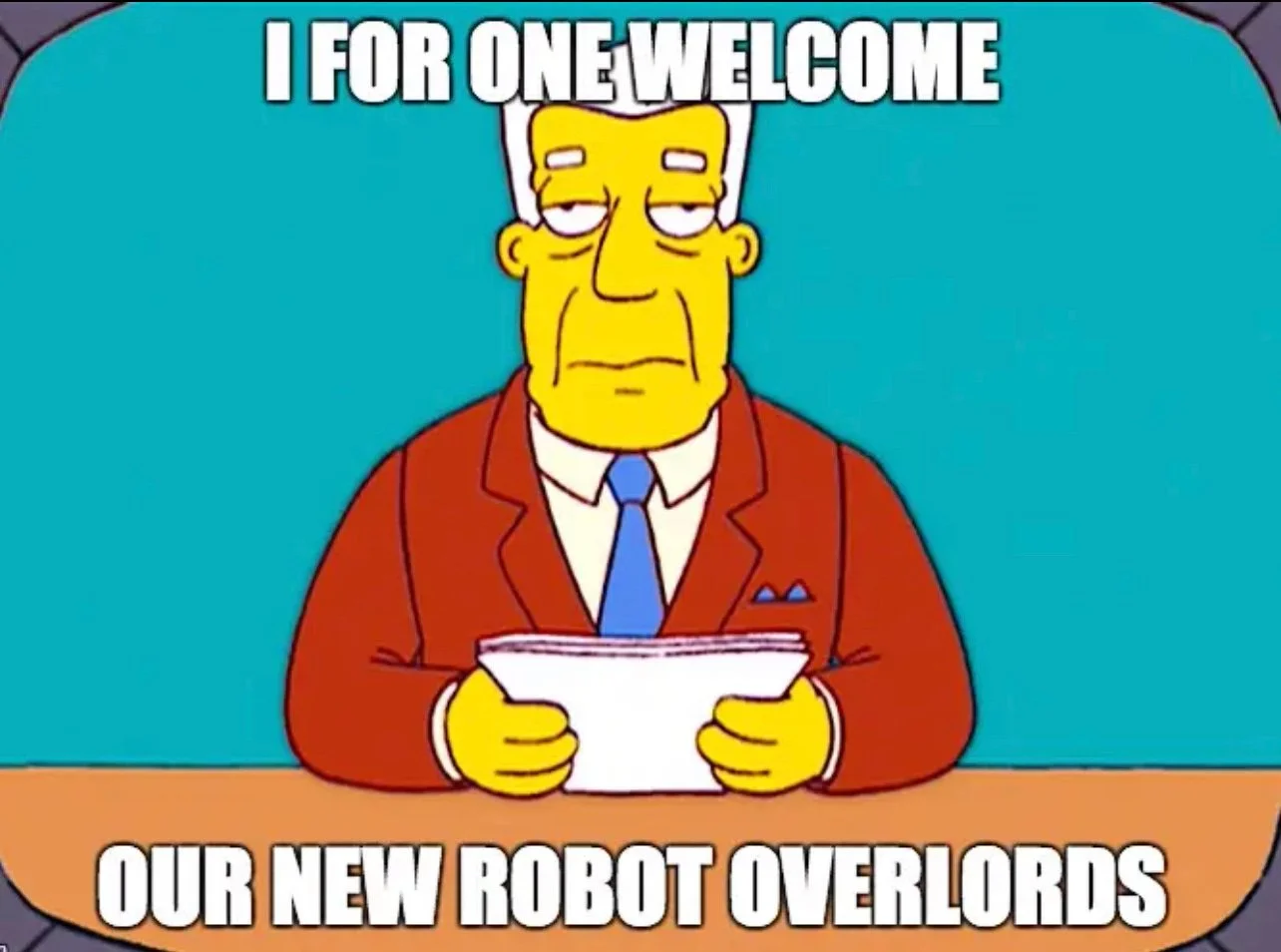From firms to networks: How coordination technology will reorganise everything
If you look closely, the Leviathan is made up of nodes in a network.
The invisible technology all around us
The process of everyone’s collective efforts of doing things in the real world - taking some stuff, making other stuff, and creating value, together makes up what we call the economy.
This is driven by technological innovation in some obvious, and some less than obvious ways. Of course computers, AI and robotics fill our feeds, but there is ancient technology that is so embedded that we consider it to be part of the world rather than a tech stack that we have created. For instance contracts, courts, banking systems, even the organisation of people into companies - we take this for granted - but these are all relatively recent human inventions.
A two layer framework for economic technology
There are two main areas where our technological change can impact an economy. One has been changing fast, and the other is changing, albeit very slowly.
Production: making things, converting materials into products- lasers, robots, cars, paper, software. We take inputs and raw materials, and turn them into outputs. This changes fast. (whether this rate of change is accelerating is a topic for another time).
Coordination: organizing people, establishing trust, monitoring behavior. This is also technology - legal or coordination technology layer that empowers the production of value. This has evolved slowly, over the span of hundreds of years.
This essay will argue that the next big paradigm shift is going to affect the coordination layer - and will drive a huge change in how society is organised.
Production innovation
For 300 years or more, during the industrial revolution, automation has been about the relentless automation in the production layer: automating how we make things
What we consider to be fast change today, I would argue that automation started during the industrial revolution. Manufacturing, agriculture, services - all transformed by production automation, but at a fundamental level steam engines → assembly lines → computers → AI is the same fundamental concept:
The delegation and abstraction of human effort into machines. Whether the rate of this change is increasing is the subject for another time.
Objects in the mirror may be closer than they appear
Coordination layer
But the coordination layer, the legal, societal and cultural infrastructure, has remained essentially unchanged; it still relies on humans, language, writing, and trust relationships.
Writer, philosopher (and Merry Prankster) Stewart Brand wrote of this idea of the order of civilisation, with "pace layers" - with the uppermost changing quickly each lower one changing more slowly.
Make it stand out
“The fast layers innovate
The slow layers stabilise.
The whole combines learning with continuity”
Stewart Brand
The same basic institutional structures persist for centuries and coordination layer innovation needs to be measured over the span of thousands of years.
But now we are primed for change at the infrastructure and governance layers.
Infrastructure innovation moves slowly
The source code of notable technologist, Hammurabi
Let’s look at economic technology, which evolves tectonically, but drives fundamental shifts.
Central banking systems (1800s-1900s)
Limited liability companies (1700s)
Stock exchanges (1600s-1700s)
Double-entry bookkeeping (1400s)
The nation state (1200s)
The Roman Empire + scaling governance (27-180 AD)
Laws and the code of Hammurabi (1750 BCE)
Concept of Kingship (3000 BCE)
Why is this innovation so slow? These technologies tend to have a combination of high barriers to change (activation thresholds) and very strong network effects. Put simply there are very high switching costs between stable local maxima. If everyone chooses to adopt the new thing, it would be great - but how do you get everyone to switch over together- everyone needs to adopt simultaneously.
It’s difficult to imagine being the only person in the world with an email address and somehow getting everyone else to get one as well. But if everyone has one, the world changes and what you can do as a society changes too.
For instance, talking to people working in agent-based AI in 2017 was a wild experience where every sentence seemed to start “in the future when….”. It was hard to imagine how it would be possible for everything to change to one where there are AI Agents acting as representatives for everyone and everything.
But there will be a tipping point, maybe not now, but later where a paradigm shift happens. Coordination changes slowly - but when it changes, everything changes
The way things were for a few thousand years
So let’s take a previous stable maxima that we had as a society was this:
People interacted with Markets to produce, buy and sell goods, and this was managed by a Government enforcing those rules.
And yet, the dominant coordination mechanism in the economy today is the company. We all work in one, or have one to manage our activity. Many people might be like the fish below, we are swimming in it, so we don’t realise the water is there. But firms are relatively new innovations.
What the hell is water?
Institutional innovation
I would argue the last really fundamental General Purpose Technology at the economic infrastructure layer is the idea of a “Firm”; a separate entity in a “Limited Liability Company” which started in the 1700s and headed towards ubiquity by the mid-late 1800s.
Before: people working on individual account, or in partnerships with unlimited liability
After: created the modern "company" as a separate legal entity and abstracted the ability to “own” a share of its productive value
This enabled massive capital aggregation and industrial development by formalising ownership into “shareholders” and creating a limited liability for those owners in the event that everything went wrong (your “liability” is limited to the amount of capital you have contributed). This took centuries to develop and spread globally.
What is a company
Think of A COMPANY as an organism LIVING in the environment which is the economy
The company eats things - takes inputs from outside the entity
The company excretes things - produces products that other people or companies will pay for
Value is created - creates economic excess in the form of profits
A company or firm is the size it is because of the relationship between these value drivers. A company grows larger when internal coordination (doing things inside the company) is cheaper than market transactions, and it will not grow any larger when it can buy inputs cheaper than it can produce them inside the firm.
The company relies on its ability to sense, understand and interact with the environment, and these technologies have not changed for thousands of years.
For the longest time this has been based on people, language, and TRUST
Change driver: the rise of the machines
Economic actors are increasingly machines and this machine economy will be larger over time. What previously had been the preserve of high frequency trading is now permeating every aspect of our economy. The internet isn’t dead - it is alive with machines, and while that’s not great for social media, it will be the case that most internet users will be machines over time.
Machines coordinating with machines need different coordination technology
Human-based coordination mechanisms aren’t relevant as machines don't use language and trust relationships the way humans do. Our current coordination layer is designed for human-to-human interaction, but now we need one that works at machine scale and speed. This creates massive pressure for coordination layer automation and I believe will pull us from our stable local maxima to a new stable maxima.
Towards a network economy
The coming shift adds a new coordination layer in the form of networks that shift how people interact with markets, and each other.
As you know I have worked the past eight years in blockchains. Blockchains and other trust technologies are enabling trust at scale through smart contracts, trust management, programmable transmission of value and self-managing computer programs.
It is true we are building civilization-level technology in the middle of a giant casino, but speculative manias frequently attach to technology phase-shifts (see railroad companies in the 1800s for more information).
My view is that these decentralised networks represent the cutting edge of network-centric organisation and point the way to where we are going. Smart contracts, trust management, programmable transmission of value and self-managing unstoppable computer programs are valuable building blocks for a future economy
This innovation in the coordination layer will change the way the production layer is organised - just as firms revolutionised coordination in the 1800s, networks will revolutionise coordination over the next 20 years.
So what specifically do I mean? The fundamental breakthrough is the automation of governance and coordination - something that has been impossible throughout human history until blockchain powered networks enable trusted, automated institutional mechanisms.
This represents a structural transformation in how economies organise themselves, moving beyond purely human-mediated coordination to technologically-mediated coordination
For the first time we can automate trust, governance, coordination itself. We’re not only improving human coordination - we are replacing it with algorithmic coordination in a structural transformation in how economies organise
Companies (Firms) will be increasingly impacted by this a change in transaction costs
The main means by which you and I do our work at the moment is inside a company, and I believe the size and form of these companies will be fundamentally changed over time.
Networks change the economic equation as many costs are reduced - the cost to search for something, the cost to negotiate or the cost to enforce contracts will change as various aspects of activity are delegated to machines.
The net effect of all this is that market coordination does not necessarily need to happen inside a company, and as marginal costs are reduced could happen at the network or market level.
Firms grow when internal coordination is cheaper than market transactions. In effect, firms handle what markets can't coordinate efficiently. If transaction costs inside a firm are MORE expensive than outside, the boundary of the firm will shift, and companies will become smaller as activities shift from hierarchical to network based organisation.
Network driven coordination will drive fundamental restructuring of economic organization
Where next? potential consequences and areas of change
What will be the impacts - tech writers talk about unbundling and a rebundling in startups, there will be the same in institutions and forms
1 - value and activity will re-allocate across institutions
This isn't a replacement but a reallocation of activities across institutions - an increasing amount of activity will be coordinated by these networks.
Some activities move from firms to networks, and some from markets and governments to networks, and new hybrid organizational forms emerge
2 - Firms (on average) will shrink
Activities will shift from firms and governments to network-based coordination
Relative cost of completing an activity inside a firm increases as network costs decrease
More specialised, smaller firms will thrive - focused on core competencies. You could look at this as a Great Unbundling, where network manages much of the coordination layer, smaller entities (maybe even single celled creatures) will work together
3 - New market participants will arise to handle where trust and truth are stored in economies
Organizations that manage the trust and coordination infrastructure will be required. You see proto- versions of this in many of our decentralised governance systems, though many of these are deeply compromised by mixed objectives. Network “Protocol” governance bodies and reputation systems will evolve, learn and ultimately grow. And finally there will be new forms of economic organization we haven't imagined yet - ultimately, where trust and truth are stored in economies becomes a core part of the economy and will need to be managed
What this means for you:
This is the next great institutional innovation - just as firms revolutionised economic organization in the 1800s, networks will revolutionise economic organization now
Driven by the rise of machine economic actors and enabled by “trust machines” as a coordination layer automation
The most vulnerable firms will be coordination-heavy, low-trust-requirement activities that will see the relative cost of their internal activities vs external activities disrupted first.
The most resilient: high-creativity, highly bespoke, human-relationship-dependent work. As my friend Lawrence Lundy has written, we need to re-think what work is in general for our children’s generation with a great white-collar automation coming, we need to think about human relationships, physical activities and resilient long-term activities for people in this new world.
And then there are clear blue oceans of new opportunity: firms that bridge traditional and network coordination - fluid skill collectives, Cooperative organisations of Algorithms and Agents, Outcome-based orgs that only exist ephemerally, Organisations of ecosystems of actors who currently work in different firms (eg suppliers, consumers and intermediaries), micro-multinationals, and onwards to the horizon.
The question isn't whether this transformation will happen; it's how quickly you'll recognise and adapt to it. Start by asking: What parts of your work or industry exist primarily to coordinate between people? Those are the areas most likely to be transformed first.
What next?
We're witnessing the emergence of the next great institutional innovation. Just as the rise of limited liability companies in the 1800s created entirely new possibilities for economic organization, blockchain networks are creating new possibilities today.
How do you know when this shift is accelerating?
Watch for these signals:
Traditional companies spinning off functions to external networks
New organizational forms emerging that couldn't exist without algorithmic coordination
Regulations struggling to keep up with new economic entities
The rise of "protocol governance" in mainstream business
Pulling this back to reality, I believe this frontier represents structural transformation and will move at the pace of infrastructure innovation. This transformation will unfold over decades, not years. But like the adoption of the limited liability company, once it reaches a tipping point, the change will be swift and irreversible.
In 20 years, we'll look back at today's debates about remote work, gig economy, and corporate governance as quaint relics of the human-coordination era. The most successful organizations will be those that learned to blend human creativity with algorithmic coordination; creating new forms of economic organization we can barely imagine today.
The coordination layer changes slowly, but when it changes, everything changes.


